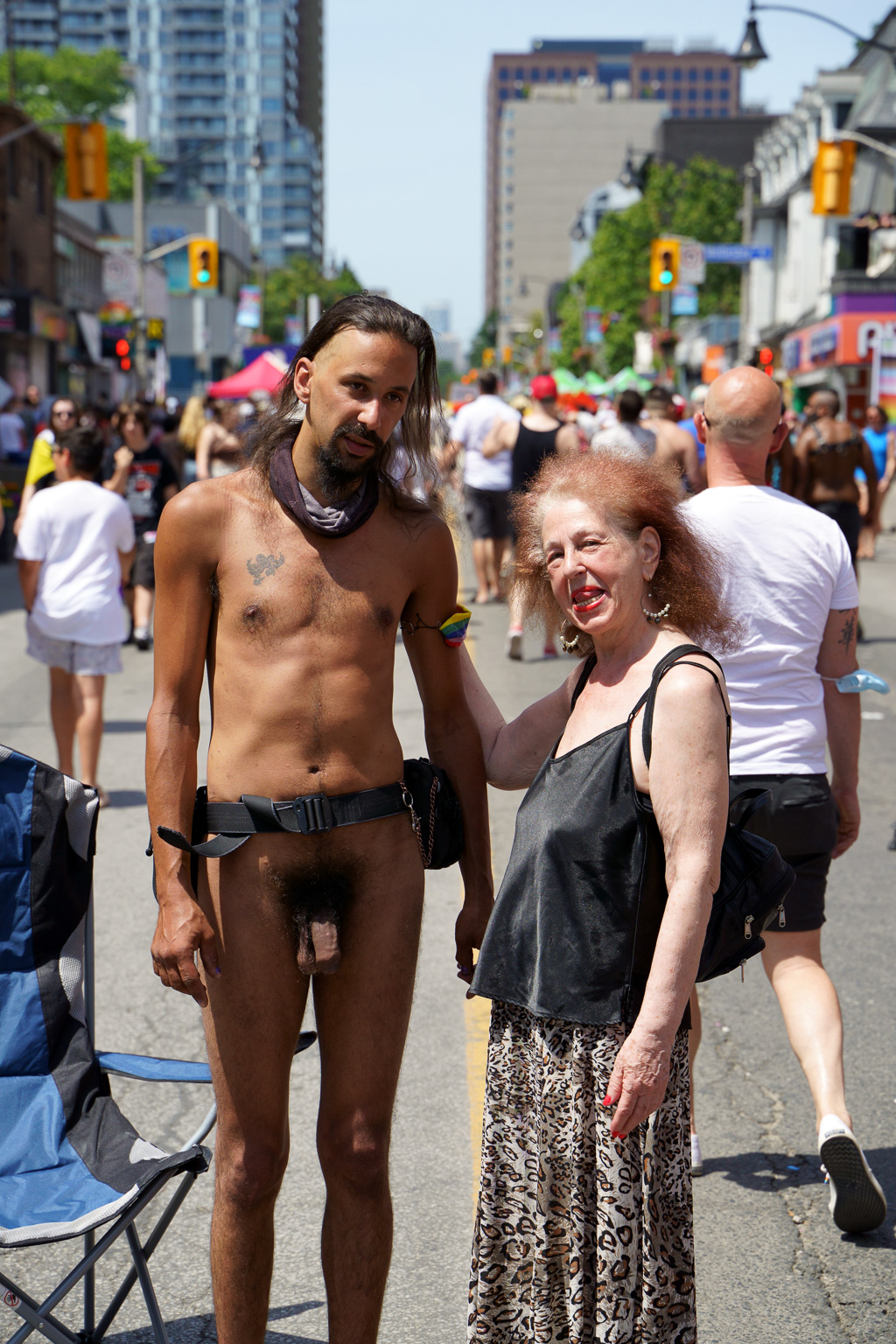I celebrated Canada’s 155th birthday a week early. At the beginning of the year, I got my fill of people wrapped in Canadian flags and shouting at me about their freedoms. “God keep our land glorious and free” they sang, and I witnessed first hand just how close is the ground that marks out religious and political fundamentalisms. Rather than spend more time with the true believers, I celebrated all the freedoms I enjoy as a Canadian by attending Pride celebrations in downtown Toronto.
When a person affirms a right, they really affirm two rights. There is the substantive right (e.g. the right to be openly gay, the right to live unmolested as a Black person, the right to speak freely in public spaces, etc.). And there is the right (the meta-right, if you like) to affirm that substantive right. When someone affirms the right to be gay, it’s cause for celebration because it simultaneously affirms the meta-right of allies like me. As long as I live in a society that protects the rights of people who are not like me, then I know I live in a free society. That’s what distinguishes the Trucker Convoy and other flag-waving fundamentalist movements: their claims trench upon the capacity of others to affirm their rights. They seek to affirm rights while simultaneously dismantling the conditions for their affirmation. At its very core, it’s a politics of incoherence, not that it matters to those who practise it.
So, while the USSC revoked Roe v. Wade, and while members of the USSC joined the majority opinion in defiance of testimony they had given at their confirmation hearings, and while Clarence Thomas has hinted that the USSC will not stop there but will go on to dismantle hard-won protections for same-sex marriage and consensual sex between people of any gender, and while a populist extremist is poised to assume leadership of Canada’s largest right-wing political party with the intent of replicating the same process here, and while a lunatic leads a nuclear power to war, and while countries like Spain and India boil even as Canada continues to underwrite the oil and gas industry, Toronto paused for a few short days and took pleasure in the moment. Church and Wellesley felt like an oasis in the middle of a moral desert. Only a few short years ago, such a statement would have seemed a striking inversion. But, today, the world is such an upside down place that past inversions are the only rightside up reflections of decency left in our world.
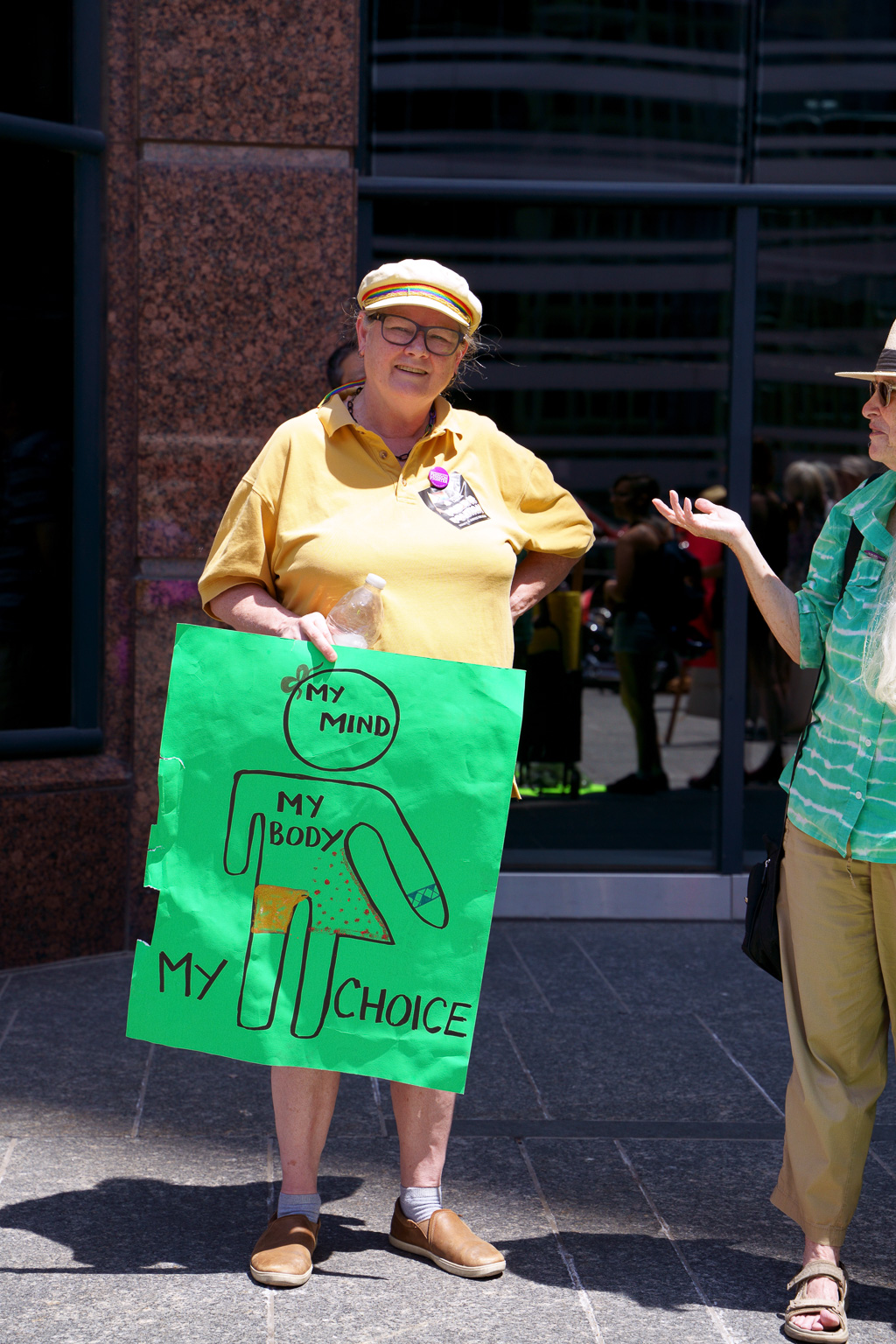
After grabbing some lunch on Saturday, I passed through the marshalling area for the Dyke March where people were gathering with signs protesting Roe v. Wade. While rights in Canada remain in place for the time being, anyone with a uterus has cause for alarm. “My Body, My Choice.” The familiar mantra from the early days of the Abortion Rights movement. It affirms that this is not about unanswerable questions regarding human life but about eminently answerable questions around the assertion of male power. Still, it took me back a few months, to Anti-vaxx/Anti-mask protests where the same mantra had been co-opted by people asserting the right to ignore public health guidelines and to increase the risk of infection for everyone. These were the same people who flew “Fuck Trudeau” signs, and while they meant Justin Trudeau, they didn’t strike me as particular about which Trudeau they meant to fuck. They could just as easily have meant Pierre Trudeau, the man who assured us the state has no business in the bedrooms of the nation.
Something I’ve observed about today’s iteration of—let’s be blunt—Brownshirts and proto-fascist thugs is that they have torn a page from the left’s playbook and are using it against them. They are not the grim faced humourless morons who terrorized Berlin in the early 1930’s. Instead, they’re playful. In February, they installed hot tubs on capital hill. When Justin Trudeau denounced them as tin foil hat wearing conspiracy theorists, I caught a woman wearing a tin foil hat, defusing the joke by owning it and parading it for all to see. Another man waved a sign quoting George Orwell’s 1984: “War Is Peace. Freedom Is Slavery. Ignorance Is Strength.” Orwell would have taken the man holding the sign as complicit with the powers that strong-arm us into believing these inversions. But our Brownshirt friends have inverted the inversion and accuse the left of undermining the agreed upon meaning of words like Peace and Freedom and Strength.
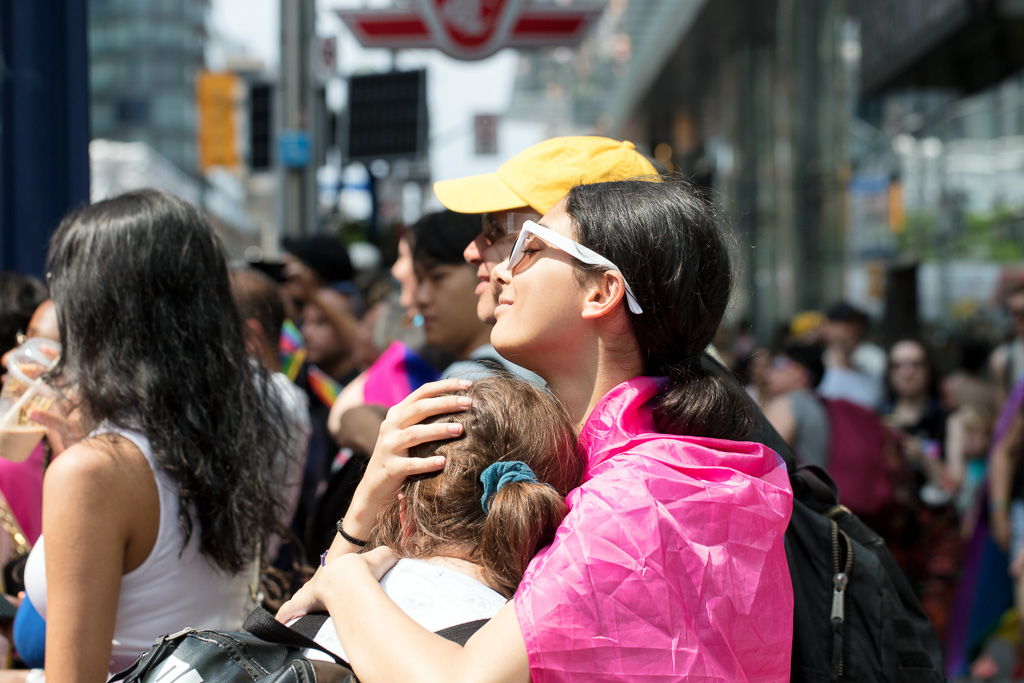
It used to be that Pride was the natural home of these tactics and we named them queering. A bigot called someone a fairy, and instead of receiving it as a derogatory epithet, the targeted person owned the insult. They strapped on a pair of rainbow wings, covered their face with glitter, and waved a magic wand. It was a more effective response to unravel the insult’s meaning than to express outrage at the person making the insult. But, as the tin foil hat conspiracy theorist has demonstrated, that strategy can be deployed just as effectively by the bigots. They wave their magic wands (or, in this case, hockey sticks) and the overall effect is to throw public debate into confusion.
I’m not sure what to make of this development. If we follow the line of thinking Stuart Jeffries lays out in his book published last year, Everything, All the Time, Everywhere: How We Became Post-modern, the idea of post-modernism has simply failed to meet our expectations. People supposed post-modern thought emerged as a way to understand the impact of modernism on our cultural experience. What in fact happened is that, as with everything late capitalism sinks its teeth into, post-modernism has become one more product for our consumption in service of right-wing forces. While Jeffries’s book is a wonderful romp through the last 50 years of popular culture, I can’t say that I find his analysis persuasive.
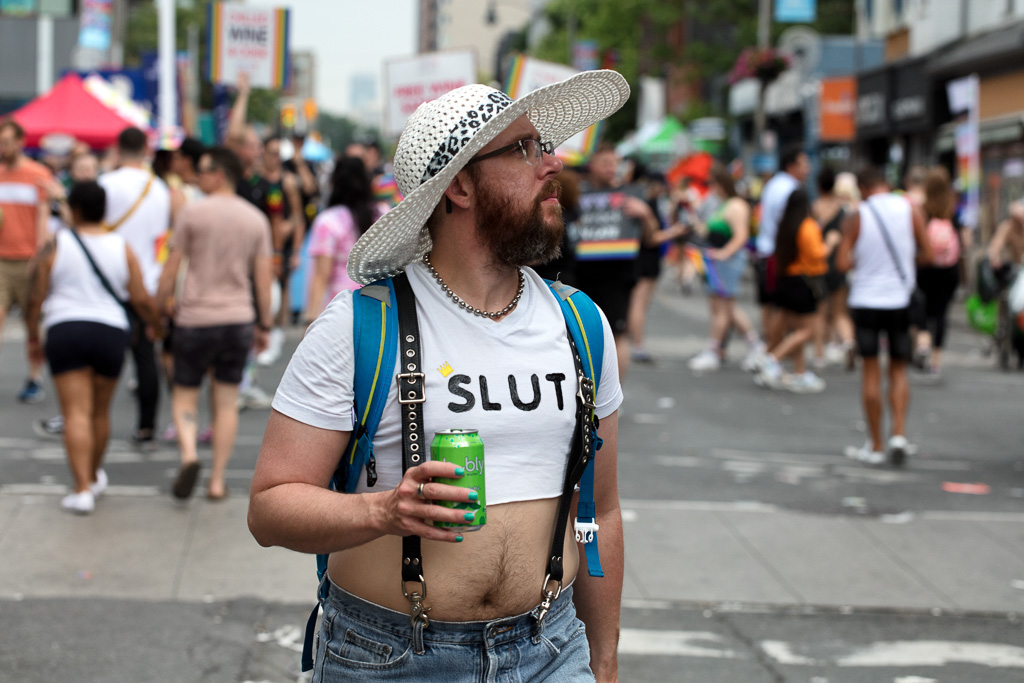
My first introduction to post-modern thought came in 1985 when I was introduced to critical legal theory and immersed myself in the writings of Michel Foucault and Jacques Derrida. In its broadest strokes, I took critical legal theory, and post-modern thought more generally, to be a strategy for the analysis of power as it plays out in every aspect of our lives. The fact that the right has adopted this strategy suggests to me that the strategy itself is apolitical. Stuart Jefferies’s sense of disappointment is unwarranted. What we witness playing out before our very eyes is an affirmation of post-modernism’s core observation: there is no moral ground; all we have is power from top to bottom.
I find a more helpful analysis in a slender volume by Andrew Potter, also published last year, On Decline: Stagnation, Nostalgia, and Why Every Year is the Worst One Ever. If you can get past the depressing title, you will find between its covers a clear-eyed account of our current historic moment. One of his important insights can be captured by the word “valence.” But to get there, we need to start with Steve Bannon who served as Donald Trump’s campaign manager and, for a time, as his chief of staff. It is Bannon who first observed that politics lives downstream from culture. Dominate the popular imagination and you will be able to manipulate the terms which frame political conversation. As Bannon noted, while the Republicans hold Washington, Democrats hold Hollywood, and Republicans will never hold lasting power until they can dislodge the left’s grip on popular media.

One of the key features of popular media is that, historically, they have aligned themselves with America’s countercultural movements. From the earliest days of pride, to the civil rights marches, to the pill, to women’s rights, to anti-war protests, to free love, to smoking pot in public parks, virtually all of America’s transgressive actions have been spawned on the left in answer to power wielded on the right. This has gone on for so long that we assume countercultural movements naturally come from the left. However, as Potter notes, there is no necessary connection between countercultural action and political valence. The situation could turn on a dime. Steve Bannon is counting on it.
This also answers Stuart Jeffries’s concerns about post-modernism. The theoretical underpinnings of post-modern thought emerged at a time when we assumed a connection between its transgressive strategies (like queering) and a specific political valence. Jeffries’s disaffection comes, perhaps, from the practical fact that, since the Trump administration, right wing movements, both in America and elsewhere, have been intentionally untethering the historical ties that have bound counterculturalism to the left. We are beginning to see its effects everywhere.
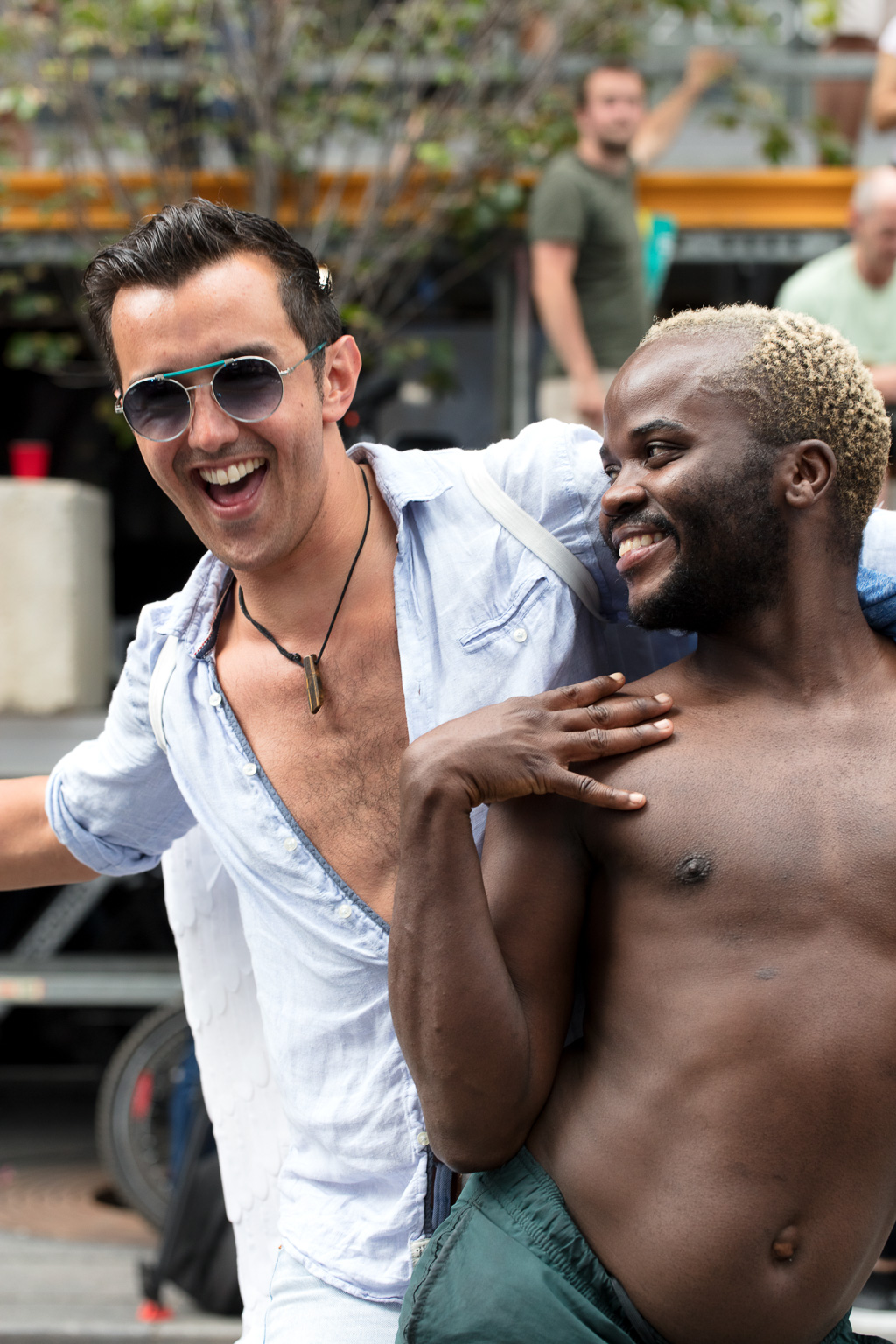
Most obviously, in the Canadian context, we have the Trucker Convoy with its loud rejection of public health protocols and the adoption of outlandish claims (e.g. Justin Trudeau is the secret love child of Maggie Sinclair and Fidel Castro) all while wrapping itself in the Canadian flag. Frustrated by its intransigence, many people in the mainstream have called Convoy participants selfish or ignorant. Those epithets may well describe some people who graft themselves to this movement. But I would suggest that the overwhelming majority of participants share our sense of reality (the pandemic is real; Justin isn’t really Fidel Castro’s son); for them, the chief attraction is that they are seizing the left’s transgressive habits and owning them. They have adopted the Steve Bannon action plan as the first step on a path to durable power.
And then I spend the weekend in the Village and it quiets my heart. That may sound like an odd things to say of a place legendary for its noise. But really. Pride silences all the noisy assholes. I run into Jagmeet Singh glad-handing people; my goodness he is enormously popular in these parts. By contrast, I see no Conservatives, nor have I ever in 20 years attending Pride events. Their conspicuous absence lends weight to my growing suspicion that even moderate conservatives aren’t really interested in representing the concerns of ALL their constituents. This returns me to my “two rights” observation at the outset. When a party does politics in such a way as to ignore or dismantle the underlying conditions that enable all to participate, then it’s no longer doing politics; it’s doing power. Pride offers a brief respite, but when the fairies have hung up their wings, and the queen’s have wiped off their makeup, and the rain has washed away the glitter, that’s when everyone takes up the struggle again.
* The End *
